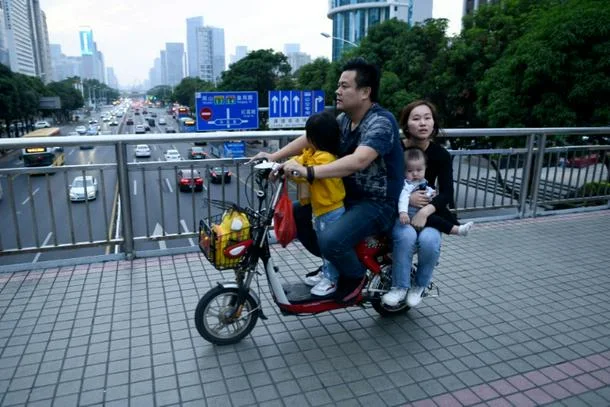China signals more support for economy
China's leaders are battling to transform the economy from one fuelled by exports to one driven by domestic consumption
Beijing (AFP) - China’s top policymakers Friday signalled more support for the economy next year with tax cuts and other policy measures as a bruising battle on debt and a trade war with the US have weighed on growth.
The meeting headed by President Xi Jinping also pledged further opening of the economy, better protection of intellectual property rights and to push forward trade negotiations with Washington.
The outcome of the annual Central Economic Work Conference, during which leaders review past policy and plan for the upcoming year, was published by the state news agency Xinhua.
Economic data has shown China’s economy slowing this autumn, with Chinese consumer spending growing at its slowest pace in 15 years during November and factories easing up on production.
Xi and US President Donald Trump agreed to a 90-day tariff truce this month, as the two sides try to find a more permanent solution to the trade dispute.
Trade frictions with the US have been “handled steadily”, the statement said.
“We must implement the consensus reached in Argentina between the Chinese and US heads of state and push forward economic and trade negotiations,” the readout said.
Comprehensive opening up is listed as one of the seven major tasks for next year – but critics say Beijing has long promised much while delivering little.
Beijing will work to relax market access, protect the legitimate rights and interests of foreign businessmen in China, especially IP rights, and allow them to operate independently in more areas, Xinhua said.
- ‘Larger tax cut’ -
China’s top officials hammer out their broad plans for the next 12 months during the three-day closed-door meeting.
Besides Xi, the entire Politburo standing committee, and top leaders from every province and region attended, Xinhua said.
China would “continue to implement a proactive fiscal policy and a prudent monetary policy,” the statement said.
The meeting pushed for more fiscal measures and “a larger tax cut”. Beijing has already put in place one round of tax cuts for the middle and lower class this year.
Still the trade row with the US has sapped market confidence, dragging down Chinese equities and the yuan.
Policymakers said they would increase the scale of local government bond issuance and solve financing problems for small and medium enterprises.
The world’s number two economy expanded at its slowest pace for nine years in July-September and analysts expect full year growth to slow further next year.
The meeting said China would “keep the economy running in a reasonable range,” next year.
China’s leaders are battling to stabilise the economy, transforming it from one fuelled by exports and state investment to one that relies on domestic consumption.
Leaders will work to “enhance spending power, let the people eat with ease, dress satisfactorily, and use things comfortably,” Xinhua said.
Policymakers indicated they would continue to push deleveraging and handle local government debt risks.
“We must do a good job in preventing and resolving major risks,” the statement said.
Beijing (AFP) - China’s top policymakers Friday signalled more support for the economy next year with tax cuts and other policy measures as a bruising battle on debt and a trade war with the US have weighed on growth.
The meeting headed by President Xi Jinping also pledged further opening of the economy, better protection of intellectual property rights and to push forward trade negotiations with Washington.
The outcome of the annual Central Economic Work Conference, during which leaders review past policy and plan for the upcoming year, was published by the state news agency Xinhua.
Economic data has shown China’s economy slowing this autumn, with Chinese consumer spending growing at its slowest pace in 15 years during November and factories easing up on production.
Xi and US President Donald Trump agreed to a 90-day tariff truce this month, as the two sides try to find a more permanent solution to the trade dispute.
Trade frictions with the US have been “handled steadily”, the statement said.
“We must implement the consensus reached in Argentina between the Chinese and US heads of state and push forward economic and trade negotiations,” the readout said.
Comprehensive opening up is listed as one of the seven major tasks for next year – but critics say Beijing has long promised much while delivering little.
Beijing will work to relax market access, protect the legitimate rights and interests of foreign businessmen in China, especially IP rights, and allow them to operate independently in more areas, Xinhua said.
- ‘Larger tax cut’ -
China’s top officials hammer out their broad plans for the next 12 months during the three-day closed-door meeting.
Besides Xi, the entire Politburo standing committee, and top leaders from every province and region attended, Xinhua said.
China would “continue to implement a proactive fiscal policy and a prudent monetary policy,” the statement said.
The meeting pushed for more fiscal measures and “a larger tax cut”. Beijing has already put in place one round of tax cuts for the middle and lower class this year.
Still the trade row with the US has sapped market confidence, dragging down Chinese equities and the yuan.
Policymakers said they would increase the scale of local government bond issuance and solve financing problems for small and medium enterprises.
The world’s number two economy expanded at its slowest pace for nine years in July-September and analysts expect full year growth to slow further next year.
The meeting said China would “keep the economy running in a reasonable range,” next year.
China’s leaders are battling to stabilise the economy, transforming it from one fuelled by exports and state investment to one that relies on domestic consumption.
Leaders will work to “enhance spending power, let the people eat with ease, dress satisfactorily, and use things comfortably,” Xinhua said.
Policymakers indicated they would continue to push deleveraging and handle local government debt risks.
“We must do a good job in preventing and resolving major risks,” the statement said.








No comments